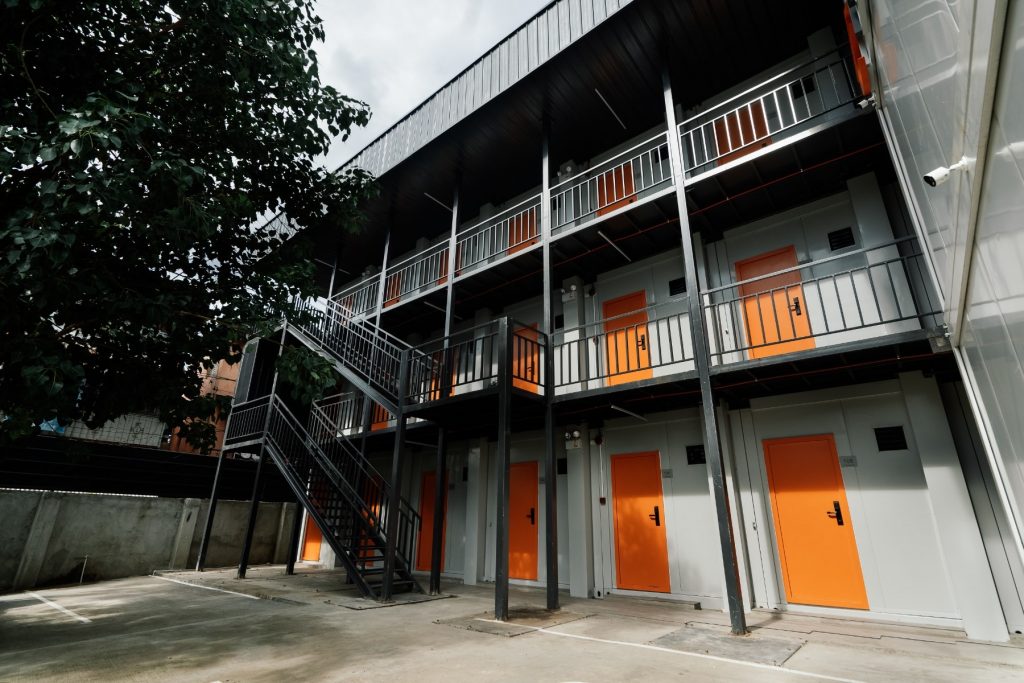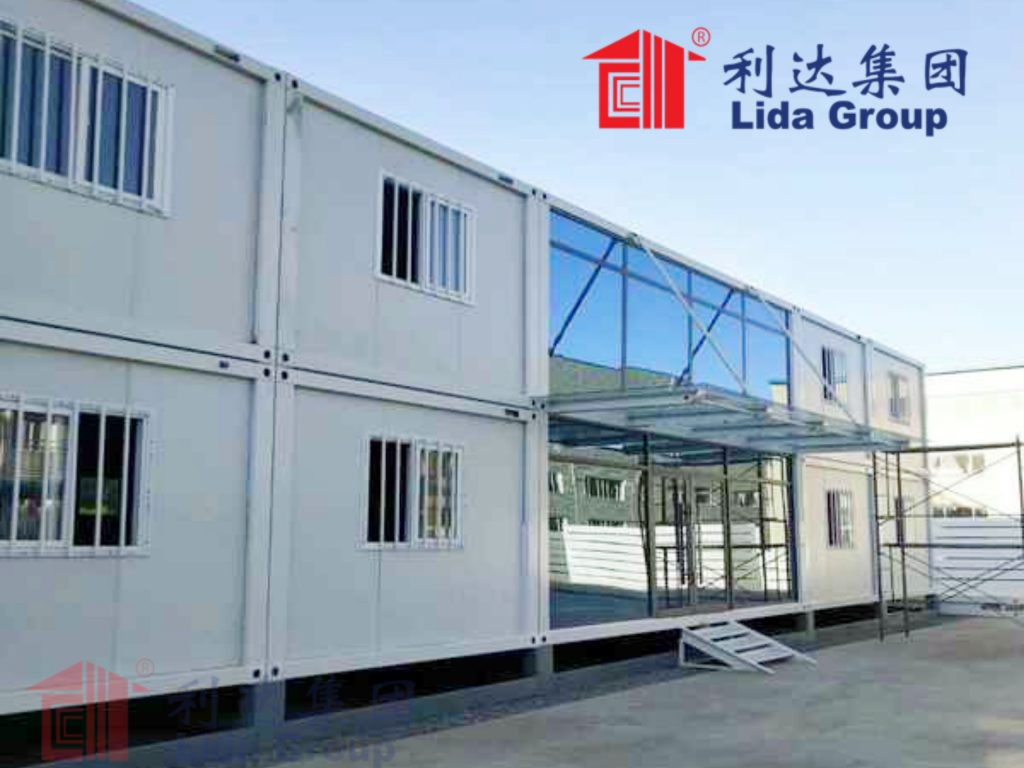A recent academic assessment of Lida Group’s conversion of shipping containers into temporary workforce accommodation units has concluded the modular, scalable design sucessfully delivered cost-effective housing that smoothly transitioned migrant industrial workers away from outdated living quarters. The project showcased prefabricated construction’s potential to rapidly upgrade worker welfare in congregate living environments.
Located near several large manufacturing zones, the aging barracks-style dormitories housing thousands of migrant laborers had become overcrowded and failed to meet modern amenity or privacy standards. As factories expanded hiring female employees as well, gender-integrated housing upgrades were urgently needed. However, budget and time constraints posed challenges for conventional redevelopment on site.
Enter Lida Group, specialized in off-site modular building. Their proposal involved retrofitting steel shipping containers with framed walls, floors, plumbing and electrical hookups to create self-contained studio apartments delivered by truck. Simple levelling and utility tie-ins enabled stacking multiple units into planned community configurations.

Researchers from Central China University of Technology closely monitored the project’s planning, implementation and post-occupancy phases. Their findings highlighted several advantages over tradition construction: containers were flat-packed for 90% space utilization during transport versus lumber waste; standardized components produced in any quantity to precisely meet schedules; and plug-and-play connections expedited 6-week assembly versus typical 12-18 month buildings.
Occupational health and safety also improved dramatically. Factories faced less disruption from dust and noise compared to ground-up projects. Modular construction’s controlled factory environment eliminated weather delays while safeguarding workers from height risks. Cost-savings topped 25% according to developer estimates, freeing financing to directly support resident welfare programs.
Across two new development sites, a combined 800 individual container apartments were rapidly erected within 12 weeks complete with on-site landscaping and communal recreation facilities. Floorplates accommodated single residents on average 40m2 spaces – considerably more private, hygienic and visually stimulating than previous dorm-style quarters.

Post-occupancy surveys found migrant tenant satisfaction exceeding 90% regarding living conditions, value for rent paid, and sense of individual identity within an inclusive community setting. Previously high staff turnover rates dropped suggesting upgraded housing played a key retention role for factories. Modular building even allowed phased relocations minimizing workplace disruptions.
The case study concluded Lida Group’s scalable, standardized shipping container conversion approach offered “an exemplary model of modular urban redevelopment delivering swift workforce housing upgrades.” Researchers noted wider applications for temporary housing, disaster relief, military operations or remote work accommodation where plug-and-play relocatability proves valuable.
Policymakers have since consulted the developer on expanding modular construction nationally to refresh China’s extensive aging migrant housing stock estimated 150-200 million residents dependent on third-party housing. According to Professor Wen Jian of Central South University’s School of Urban Planning and Design, “The container homes demonstrate dignified living standard increases need not compromise efficiency or affordability through innovative, industrialized approaches.”

Quality housing underpins equitable, productive societies and economies. As populations swell in urbanizing nations, modular building holds potential accelerating development timelines while prioritizing resident wellbeing. Strategic investments unlocking such efficiency and welfare gains through scalable, standardized solutions merit continued support according to advocates. The case highlights collaborative action upgrading living conditions at impressive scale through pioneering delivery methods respecting human dignity.

Related news
-
Disaster relief organization licenses Lida Group's portable modular container home technology to rapidly assemble refuge shelters to house displaced industrial laborers affected by seasonal floods.
2024-05-13 17:17:15
-
Researchers assess utilizing repurposed shipping containers as structural components in Lida Group's prototype prefab apartments designed to alleviate housing shortage issues for remote industrial laborers.
2024-05-13 16:52:00
-
Guangdong Province awards Lida Group contract to build earthquake and typhoon resistant seniors' apartments using innovative structural steel housing components manufactured in nearby factory.
2024-05-11 13:35:00
contact us
- Tel: +86-532-88966982
- Whatsapp: +86-13793209022
- E-mail: sales@lidajituan.com


